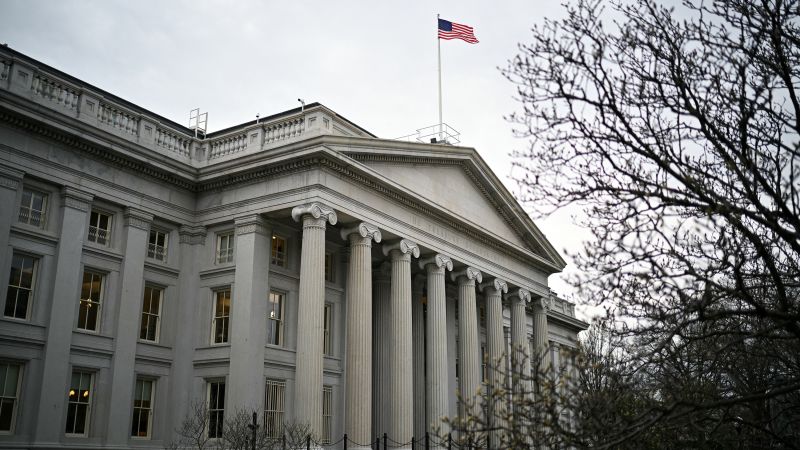Last year, flooding from Hurricane Idalia destroyed the home Rachel Muse-Connealy owns in St. Petersburg, Florida. Then, in late September, Hurricane Helene flooded the rental home she now shares with her husband and 10-month-old baby. It also set back repairs to the house destroyed by Idalia.
Last week, her family had to evacuate for a second time in a matter of weeks for Hurricane Milton.
“Our rental house and the house we own are completely underwater. Our two cars, too,” Muse-Connealy told CNN last week. “We lost all our furniture, all of our daughters’ toys. We kept what we could salvage, but now that could be destroyed from Hurricane Milton.”
Muse-Connealy and her husband moved to the Tampa area four years ago. She said they have fallen in love with the community, but with the dangers of storms and the costs of damages piling up, she has begun to reconsider her life there.
“For the first time, we have talked about where we could go next,” she said.
Until recently, Florida had experienced a population boom. This year, though, Florida homes are sitting on the market longer and available inventory is growing. Some people, including Muse-Connealy, say they are reassessing their futures in the state as they face costly property repairs, mounting insurance costs and the threat of future stress and destruction.
After home prices in Florida surged during the early years of the pandemic, they’ve leveled off this year, declining slightly in the second half of the year, according to Zillow. Florida was one of the fastest growing states in 2023, according to US Census data. But this year, the market has slowed down and more than 70% of homes sold under their listing price, according to Zillow data as of August.
“We’re absolutely experiencing price reductions,” said Josh Hanoud, a Realtor who is based in the Tampa area, though he said that many of the price cuts are the result of home sellers mispricing their homes. Hanoud said he hasn’t seen a significant slowdown this year, but “the waterfront market has hit the pause button.”
“Things went nuts for a few years and now it’s relaxing back down,” he added.
When Muse-Connealy and her husband bought their home, they never imagined that it would lose value. Now, she said they are deciding whether to sell their damaged home at a loss.
“Rebuilding our home would cost more than anything insurance would give us,” she said. “We’ve talked about selling it to a developer and cutting our losses. We would take a big loss, but then we at least get to figure out what’s next.”
Florida, once known for its relative affordability, has now become too expensive for some residents.
“I’m a third-gen Tampa native, and I’m over it,” said one person on the Florida subreddit page. “I left 15 months ago after my insurance went from $1,100 a year to $6,500,” said another.
Tina Villanueva, a mother of two who rents a home north of Tampa, said she talks about leaving Florida with her husband “almost daily.”
“Everything has gotten more expensive: utilities, car insurance, rent. When housing insurance and taxes go up, of course, we feel it because the owner of our home charges us more,” she said.
Villanueva said her home and property were mostly spared from damage by Helene and Milton.
“If it had been damaged, I thought this would be the thing that finally pushes us out of the state,” she said.
In recent years, homeowners in the state have faced skyrocketing insurance costs as hurricanes and floods have caused significant losses to insurance companies. According to Bankrate, the average annual homeowners insurance premium in Florida is $3,242 more than the national average.

Depending on the scope of damage from Hurricane Milton, there’s a real possibility that homeowners’ insurance rates in Florida will climb even higher, said Chuck Nyce, a professor of risk management and insurance at Florida State University.
But traditional homeowners’ insurance doesn’t cover flood damage. Most of the water damage sustained from Helene would be covered by flood insurance, often provided by the National Flood Insurance Program, and backed by the government. Nyce said there are limits to the flood insurance program, and even many of those who have it will still likely have to pay for significant home repairs out of pocket.
While CoreLogic has not yet released final cost estimates for damage caused by Hurricane Milton, the data analytics firm estimated that the insured losses from flooding caused by Hurricane Helene will be between $6 billion and $11 billion. Uninsured flood losses are estimated to be much higher: between $20 million and $30 million.
According to data from the Insurance Information Institute, the percentage of homes on the western coast of Florida with flood insurance exceeds the statewide average of 20%, but fewer than 5% of homeowners in many Central Florida counties have such policies, meaning potentially massive out-of-pocket costs for repairs.

When water rushed into G. Michael Harris’ home in Belleair, Florida, during Hurricane Helene late last month, he wasn’t thinking about anything but getting to safety. His family hadn’t anticipated intense flooding and had been sheltering at home.
“The water came in so fast,” he said. “I got my kid and my dog out, and then it just kept rising. There was so much water, I couldn’t budge the doors. I was sitting on my kitchen counter and watching this water come up.”
Harris and his family eventually made it to his in-law’s home nearby, which was mostly spared from damage. The water in his home eventually got up to five feet high, Harris said. That meant nearly everything was destroyed.
“We lost everything in a matter of one day,” he said.
But Harris said he plans to stay put in Belleair.
“I’ve lived on the water here in Belleair for the last 35 years, and we’ve gone through every hurricane,” he said. “We’ve just got to hope insurance is going to be able to help us rebuild.”

Read the full article here
















